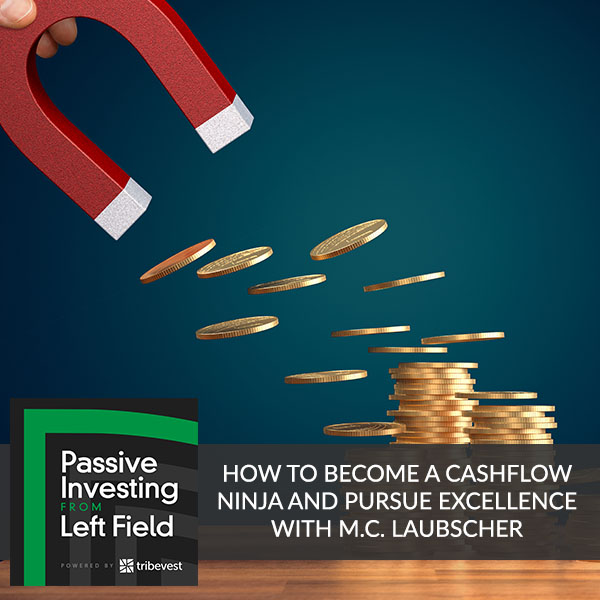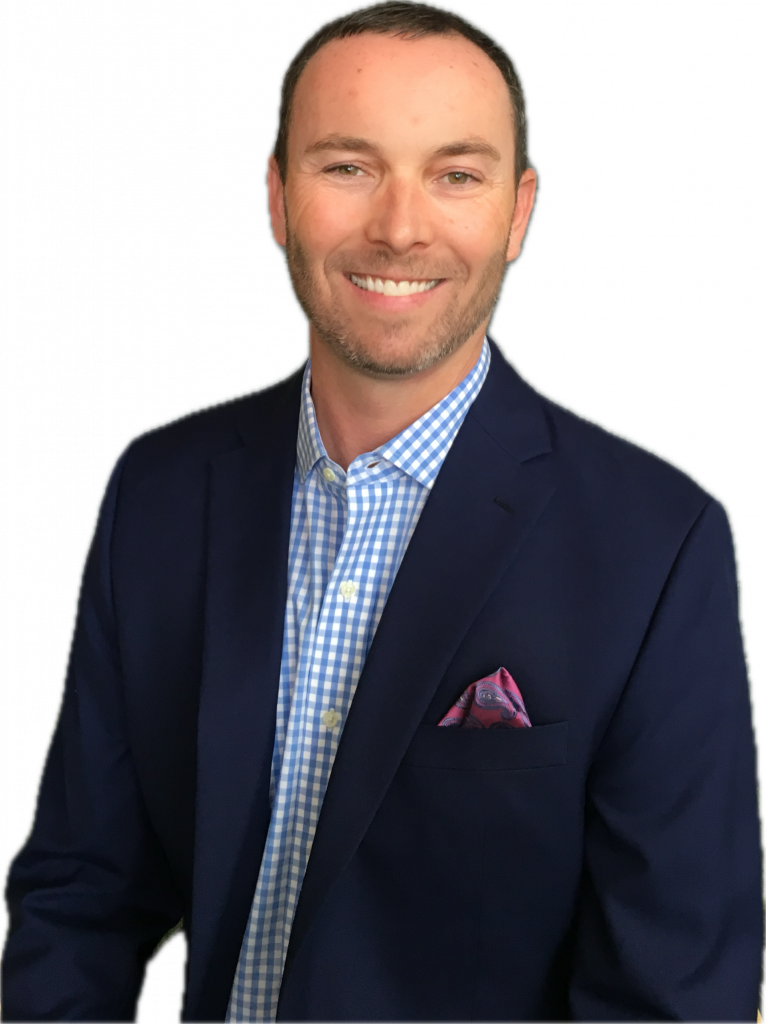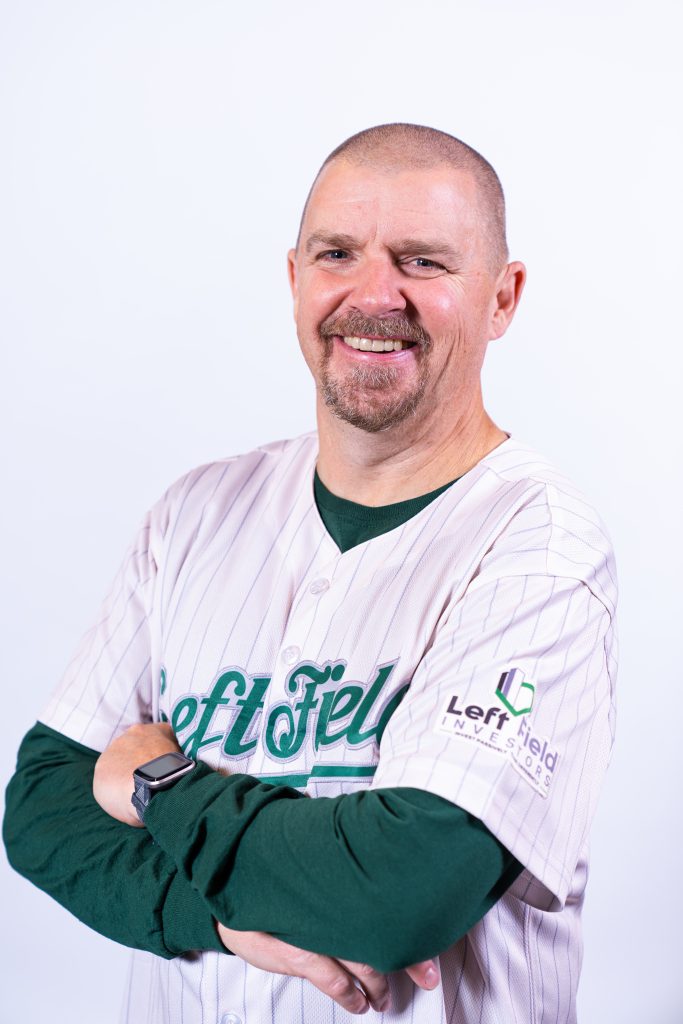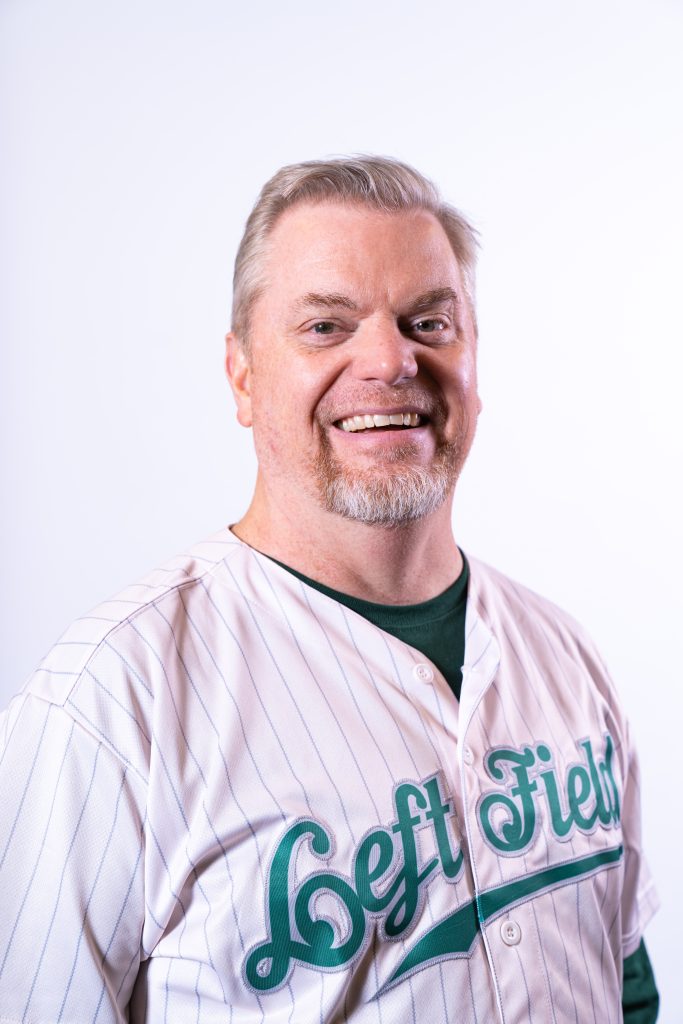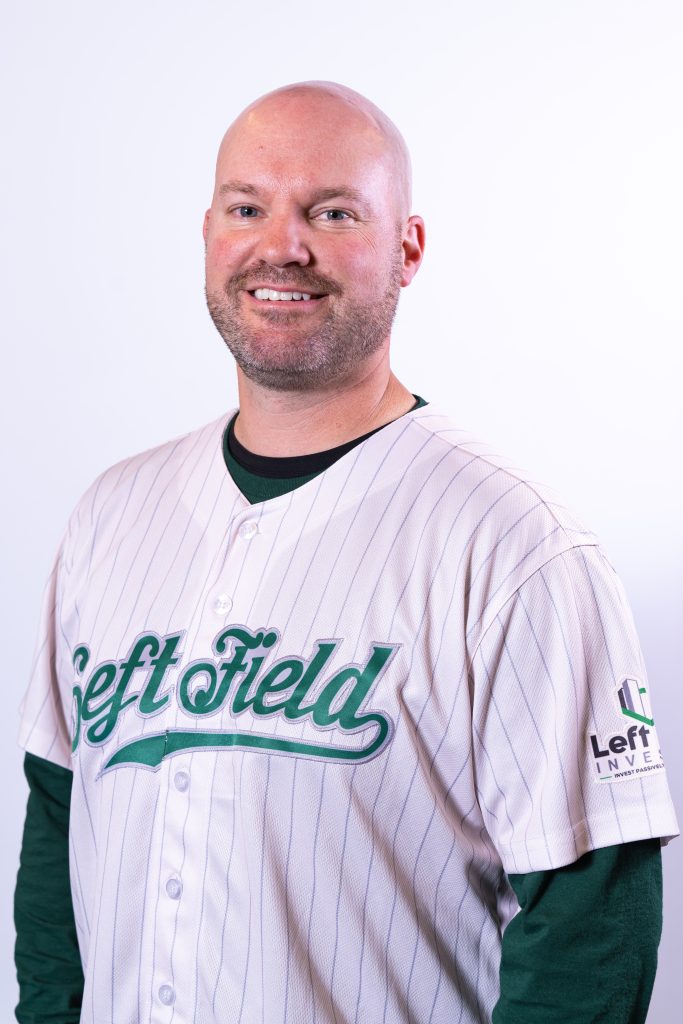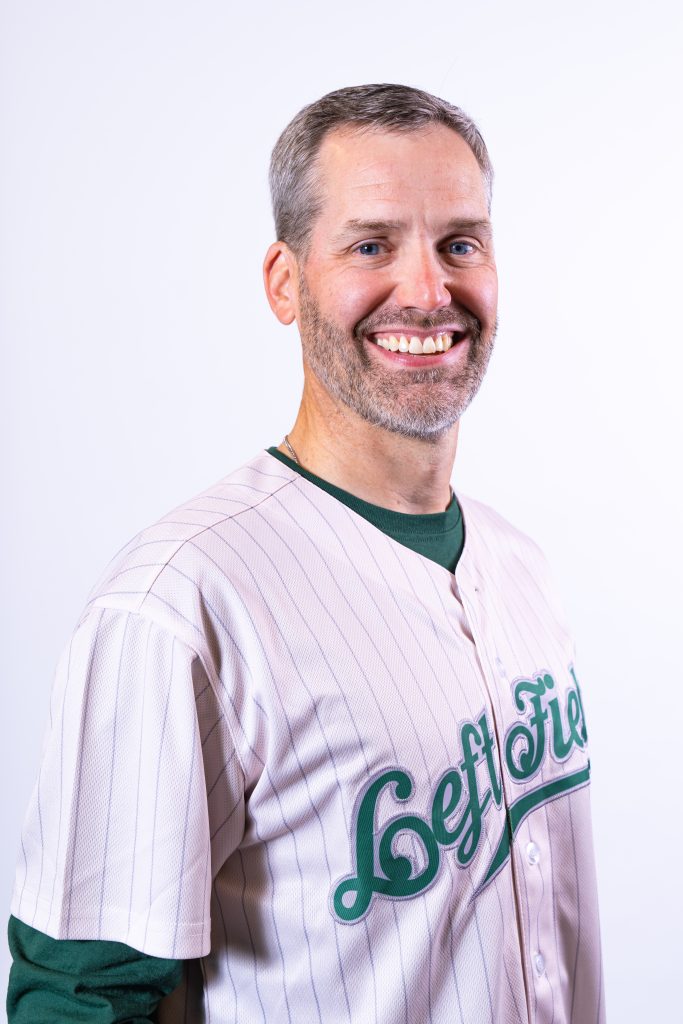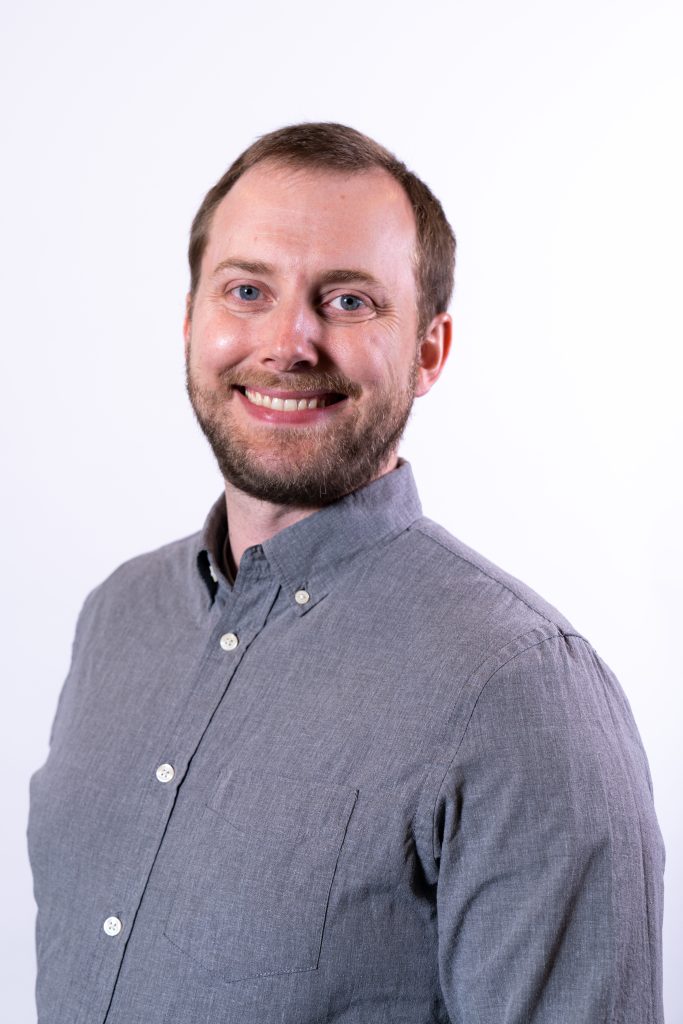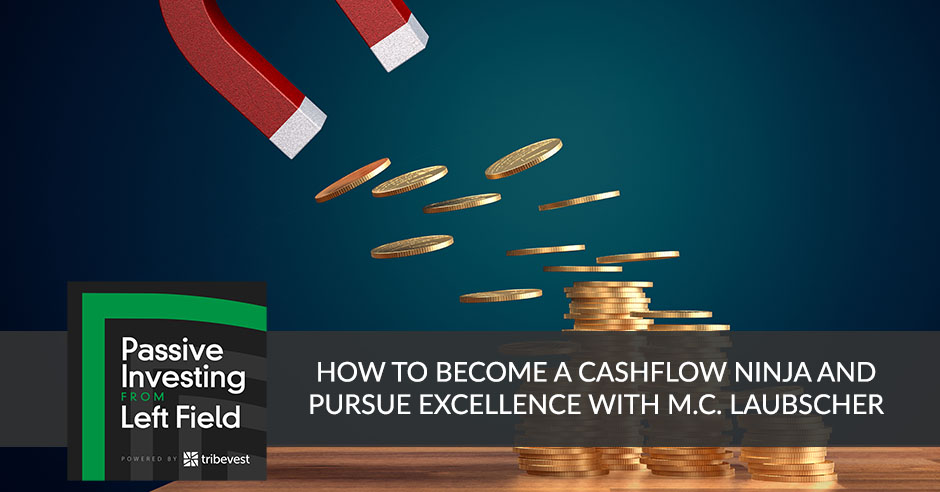
When investing, you need to do your research like a ninja – you need to know the market, the industry, and all the factors around your investment. Join your host Jim Pfeifer as he sits down with Cashflow Ninja, M.C. Laubscher. M.C. is the founder of Producers Wealth and Cashflow Ninja. In this episode you will learn how to find sponsors and people you can trust when it comes to investing and hear about some of the different real estate assets M.C. focuses on, such cell tower syndication high cash value life insurance and more. Forget about FOMO and live in JOMO instead! Find what that means as you become a Cashflow Ninja today!
—
Listen to the podcast here:
How To Become A Cashflow Ninja And Pursue Excellence With M.C. Laubscher
I’m excited to have M.C. Laubscher with us. He is the cashflow ninja, a cashflow specialist and host of the top-rated investing podcast Cashflow Ninja, as well as Cashflow Investing Secrets. He’s the President of Producers Wealth and the author of a book I read, The 21 Best Cashflow Niches. It’s a great book. I recommend. You check it out. M.C., welcome to the show.
Thank you so much for having me. I’m looking forward to this.
I’ve been listening to podcasts for a long time, so it’s great to have a chance to chat. The way I like to start is if you can give us your journey. How did you get here financially? How did you get into cashflow investing? Tell us how you got to where you are.
I’ve been in the US for many years. Time flies when you’re having fun. I’m originally from South Africa. I traveled quite a bit before that and have seen a couple of places in the world. The one thing that stood out is this is an incredible place that allows upward mobility. I couldn’t believe it. You could come here with the right mindset, work ethic and the sky is the limit or even unlimited. There’s no limit to what you can create and produce here. I saw it as a place where incredible opportunity exists and it still does.
I played in a sports league here. A lot of folks, when they travel for sports, either get into video games or card games and that kind of stuff while you’re traveling, whether it be a bus or by plane. I was always very interested in history and economics. I started reading a lot about economics and history. My mom gave me the book Rich Dad Poor Dad by Robert Kiyosaki to read. I was fascinated with money, investing and economics because it was the missing piece that I needed with my history in economics part of it.
I deep dive into that but I took action right away. I purchased my first property many years ago. At the beginning of 2002, I started in single-family. It was more like a condominium. That was my first deal. I still remember, after I purchased it and I got the tenants in there, there were paying rent. I paid all of the expenses associated with it. I couldn’t believe that there was money left over and it was cashflow. The 22-year-old version of myself looked at this and go, “This is incredible. How many times can I do this?”
I read the book, studied some other books on it, took action and as every single investor will tell you, the school was about to start for me. It took me on my journey. I started as a real estate investor. I worked for a friend and multifamily. This was another a-ha moment that would be very valuable for your readers. I was working started from the ground up because I was still playing sports at the time. You can’t have a stable career doing that.
I was working for one of my friends. His family owned a ton of multifamily on the North Side of Chicago with a huge portfolio. I started at the bottom doing maintenance, cleaning the property, painting, helping with apartment turnovers, leasing to eventually doing property management, collecting rent, marketing, all that kind of stuff and then I got my broker’s license. I was part of the acquisitions team for a lot of other properties that they were looking at.
I remember chasing this one investor. I’d probably chased him around 6 to 8 months because I knew he had 3 or 4 properties, probably 200 to 250 units to sell. I couldn’t get ahold of them. I still remember going in early one day into the broker’s office 7:30-ish I got in there and that person walked out in the head broker’s office.
He sold his entire portfolio on a handshake deal. It’s a light bulb moment for me. I looked at this and I’m like, “There’s a whole different dimension to this game of investing here.” I’ve been playing checkers. There’s chess and essentially, what I realized is that every single person that had real estate number 1 or number 2, wanted to sell or buy on the North Side of the city of Chicago, that would be their first stop right there, in that office because these folks are cashflow ninjas.
If you want to play the game of investing, you need to find the right people who are cashflow ninjas in their space.
They would either buy the property, flip it to someone that they knew would buy it or they would keep it as a buy and hold that I started to realize that, “I can’t compete with these guys. There’s no way. These are cashflow ninjas. How do I get to invest in the best deals with the best operators with these cashflow ninjas? I have to partner with these folks. I can invest with them as a passive investor in some of the deals.”
I was working for them at that stage so I could contribute some skills, capabilities and that kind of stuff to do some deals but it was a completely different switch in how I look at things. I’ve taken that with me. Other boards of my journey started several businesses. I’m still invested in a lot of businesses. Most folks have heard about Cashflow Ninja, the podcast, which I’m the creator and host of, which I’ve been doing for many years, which I started with a $25 microphone. We’re in 180 countries and millions of downloads. We’re building on an education platform for that company. I have two other companies, Producers Wealth and Producers Capital Partners.
The one, we focus on a specific cashflow strategy, which involves life insurance. The other company, we’re looking at raising capital for deals, where I partner with more cashflow ninjas. The big thing in my career was I started small and started building up. When I looked at, “How do I take this to the next level and grow and scale my investing?”
I realized, “There’s a different game. How do I get to play in that game? It’s finding the right people that are cashflow ninjas in their spice that I can partner with instead of being a weekend warrior and trying to compete with these guys. It’s not going to work.” The focus is the core of businesses and my investments have been cashflows. That’s been something that I’ve been very passionate about and talking about how to control cashflow in your economy, business economy, investment economy, how to grow that and diversify it.
The key is you took action on that first condo. If you hadn’t done that, who knows where you would have been? Part of the issue is people need to take careful action but take action. Also, the light bulb went on for me several years ago about the cashflow because to me, if you’re investing in something and it’s not producing cashflow for you, you’re not investing. You’re speculating. It took years of me investing in the stock market, me being a financial advisor, all of this education and then not until I hit real estate did I see, “You can buy an asset.” It sends you money every month. What a fascinating concept?
The core focus of what I try to do still within my economy is I try to take active income because I do have active income from businesses but I always try to convert that into leverage income more passive income. That hasn’t changed at all. I’m a big framework and model type of guy from my sports background. I see that in every cashflow ninja. They all make their money somehow.
They have ways of increasing, growing and scaling their income because they know that will drive everything else. They all position capital effectively and efficiently, then they deploy it to generate more income for them. They’re also positioned for growth. They see trends but then they protect everything with proper tax strategy, asset protection and estate planning.
The game in that framework is all these business owners try to take that active income that they generate and turn it into passive income. The best way to do that is by finding the right people. You can be invested, let’s say, in 5 or 6 different asset classes and know everything that there is to know, then also be an active participant in managing that investment. None of us is Superman or Superwoman, unfortunately, but if you find the right people and immerse yourself, you understand the asset class.
You understand all the risk factors that are involved and how to manage risk. You find great people with a great track record that continue to do great things. You partner with them. That’s how you stay focused on what you’re doing by increasing your income, reducing your taxes and then the excess capital can then be used to be turned into more passive income.
It’s not super complicated. It’s not doesn’t happen as fast as maybe you want it to but if you start the journey, you will find within several years, that snowball turns into a giant snowball and it keeps on rolling down that hill but you go to start and take action. I’d like to talk about the book, The 21 Best Cashflow Niches. I read it and I love it because it talks about all these different asset classes. It describes it and tells you the pros and cons of each. It hit my shiny object syndrome. “I have six other asset classes I have to go after because now I know about them.” Can you talk a little bit about the book? What made you write it? How did you find all this information?

One of the main things that I’ve realized after interviewing over 700 cashflow ninjas and questions that I get from folks is, “How do people make their money? What is the one thing that you could take away from them?” This is the question that I get over and over, “What are some of the most interesting niches and investment opportunities that have been shared on your show?” The answer to the first question is, “There are so many ways to do it. There’s no one way.” We live in a world where we’re marketed to in a very maximalist way because we have the collective attention span as of a net, as a society. That’s why marketers have to market to us in a very maximalist way.
In reality, it doesn’t work that way. There are so many ways to generate wealth, very similar strategies regardless of the asset class. There are core things for investors but there are so many ways to do it. The reason for the book was to share an insight into some of the most interesting niches that have been shared on the show to give people an idea to diversify cashflow.
We’re going through incredible changes globally. We’re at one of the most exciting times on the spinning ball in human history. There are so many changes, the fourth industrial revolution, which brings about a lot of economic changes, which then, shows up in all different spheres of our life. Essentially, we’re going through change. There will be massive disruption and massive chaos. How do you protect yourself as an investor?
Diversifying income streams in a diversified cashflow portfolio, that’s one way to do it. That’s what the pros are doing. Dahlia talks about it all the time. He’s four seasons that he positions his portfolio. You could do the same thing as an investor in different asset classes and niches. I wanted to give everyone an insight into some of the best opportunities that there are, give them an overview of what it is some pros some cons. If they wanted to deep dive into it and immerse themselves in a specific asset class, they could do so but I wanted to put the smorgasbord out there and let people figure out what tastes good for them personally or not.
We spend so much time in our community looking at the standard apartments, maybe mobile homes. We do some industrial triple-net. There’s a self-storage and you talk about all those in your book. There are other opportunities too. I’d like to talk about some of the less well-known opportunities. You talked about parking garages, for example.
How do you evaluate a parking garage opportunity? Where do you find it? Who owns it? How do you make money on it? Is there any worry about people are taking Uber more, maybe their self-driving cars or parking garage is even going to be relevant. Can you talk a little bit about parking garages? I don’t know why it fascinates me but it’s something new and different.
It fascinated me too when I looked into this personally because I had the same perception that, “Isn’t the car is going to be like a thing of the past? When is the hoverboard coming, the hovercraft or something?” No. There’s a huge demand for it. Not just in cities. Everybody that’s ever been to a major city in the US knows that parking is a huge commodity. That’s very easy. There’s a huge demand in cities. There always will be, even if it’s self-driving. You got to park cars somewhere, the same with Uber, Lutz and so forth. There might be less traffic in there but there’s still a need for cars to be put somewhere. The airport is another thing.
There’s a huge change across the US and this is happening globally of where people live. It’s starting to open up more opportunities in smaller cities to set up parking facilities. There’s still going to be a need for it. It’s a very interesting business because essentially if you think about it, how everything’s moving to AI, robotics, 3D printing, internet of things, 5G, it fits in because you can pretty much run a parking garage with maybe one employee. Everything’s automated and operated through machines. Most of them are. We took a road trip. We parked and there was no one in the parking garage. You park your car after you book your ticket, pay it when you go out and that’s it.
Very fixed overheads, great margins, depending on where the parking garage is, there are still some folks syndicating some of these deals out there. You can find them. What I found in that asset class, the prime, pristine, sawed-off their spots, they’re wrapped up. That’s old money right there. They’ve been in families for a while. There’s a lot of folks building new ones.
There are the older ones. We all know about them, the airports, the major cities and all that kind of stuff. That’s pretty much wrapped up. Here and there, there’s still an opportunity where somebody needs to sell because of a reason. They’re syndicated but I see a lot of folks building them out, which is interesting and has some similar concept.
Be very careful about what you invest in or what industry you invest in.
You have to be very careful in what industry or what the other factors are. For example, if you’ve invested in a parking garage that was syndicated, close to a nearby airport in 2020, it’s probably not performed as well as any of the other assets because nobody’s flying that much anymore. That’s an example of things to think about.
If your parking garage is where people go shopping, essentially, you might have wanted to rethink that as well because the way that I see it with my paradigm and worldview is a lot of stuff has gone online. It’s only started. It’s 11% or 12%. I forgot the exact number of all sales that are only online. Most people think already that ship has sailed and it hasn’t even taken off yet. You want to think about those things like any investment but you want to think about those things when you look at this and then find the right people that have been doing this for a long time, that has a track record, successfully done these deals and continue to do these deals.
Let’s talk about that, not just with this asset class but any asset class. How do you find quality sponsors, people that you can trust with your money? I know in our community we’ve started saying, “We’re going to mostly have it be referral-based. Meaning, I know, like and trust you. You have invested with a sponsor. You introduced me, so I know that sponsor.” If I don’t know anybody who’s invested in cell towers or parking garages, how do you find those syndicators? How do you qualify a syndicator?
Number one, it takes a lot of work in this. I love the referral one that you mentioned. That’s one that I used. Great people that I know like and trust chances are pretty good that they know other great people, that I would like to get to know better and that I eventually trust as well. That’s very good. That’s a shortcut. It’s shortcuts of negative connotations but essentially, in the world that we’re operating in, that’s what people find valuable. Intellectual shortcuts, relationship shortcuts, network shortcuts and then there’s the hard way.
What I did too is I had a goal of speaking to 4 to 5 people a week, essentially operators of the asset class that I wanted to go in. I would interview them and get to know a lot about them, their background, the deals that they’ve done, looking to do, what markets they’re in, their investment philosophy, investment strategy, asking all of the questions that I have about a particular asset class and see how they answer them. Have they ever overcome a bad situation?
That’s a very good question to ask because some syndicators have. There’s someone that I’ve known that at one stage because they were scammed and this was seven figures of investors’ money. They made every single person whole. That’s that character right there because the easy route would be to duck, put your tail between your legs and run away. That person made sure that they were going to make every single person whole and continue to do what they were doing. They stood up to adversity. That’s a very good character trait. That’s someone that you know that’s going to take care of your money.
I find out all these things and I do background checks on them too. It’s very simple to do a quick search online these days. Folks get lazy with that, look everyone up and read everything that’s there but take everything with a grain of salt because chances are if somebody’s doing a lot of things well and/or have done a ton of deals, the majority of folks would love that person. Maybe there’ll be 1 or 2 folks that didn’t.
That 1 or 2 people isn’t necessarily the reason why you shouldn’t do business with that particular person and take things with a grain of salt. I’ll give you an example. If there’s a disaster with, let’s say, a real estate property and you have a preferred return, would you rather want someone to pause on preferred returns and fix the problem with the property sort it out, eventually catch everyone up and turn that property into a great investment for everyone or do you want them to continue to buy it out and having compromising that investment?
I’ve seen stuff online about folks, “They paused preferred returns.” Someone’s like, “Did they eventually make you whole?” Yes. Take everything with a grain of salt. I do all of those types of research on someone and I watched them. I don’t marry someone right away. I watched them after, even after if I put them on my shortlist. I see what deals are coming out, deals they are involved in and how they underwrite deals.
You’d be surprised. I get a lot of deals and see folks underwriting deals. The first response to it is, “These folks must have never gone through it 2008, 2009 or 2010 to underwrite like this.” Somebody that’s been through a full cycle is probably a good bet. Not that I’m saying I wouldn’t go with someone that hasn’t been through that. Some great operators are starting but make sure that they have people on their team or part of teams that have seen a cycle and see the good, bad and ugly of all of this stuff.

That’s powerful to watch them. You don’t have to marry them right away. Sometimes when I talk to a new syndicator or new to me, I feel the pressure that I need to get into the next deal that they present me because I took up an hour of their time. What I’ve tried to do is a pause. Watch a few deals come through, underwrite a few of their deals and analyze them.
After you become comfortable and you talk to them about a few deals, invest down the road. You don’t have to do everything now. People sometimes feel pressure like they have to take action. We always talk about, “You got to take action.” There are certain actions you can pause then when it’s a new syndicator. It’s fine to watch, monitor and get to know them before you invest.
Don’t feel pressured anyway. Don’t also get sucked into FOMO. I prefer JOMO, the Joy Of Missing Out, instead of the Fear Of Missing Out. One of the things that I do personally and I continue to do, the whole ninja thing with cashflow is I always try to pursue excellence on my craft daily. I started with my dad, which is in martial arts. I get up every day, try to study and get better. I never think that I know everything that there is to know. I am aware that I constantly have blind spots, that anything and everything could happen and catch you off-guard and off-surprise.
I studied the men and the woman in the arena, the Teddy Roosevelt quotes and rants. I studied what they do. They have JOMO. Nobody is getting sucked into any direction or any investment because of emotion or fear of missing out. This is a part of the cycle where it’s okay. There’ll be good deals but you don’t have to chase them, get sucked in them and feel pressure. You don’t have to have this emotional thing that drives that fear of missing out inside everyone. We’re all human. We all have it.
I want to bounce back to a couple of more asset classes cell towers. I don’t own a property that they could put a cell tower on. How do I find a syndication opportunity for a cell tower?
There are some fantastic syndicators out there. This is something that I’m looking at closely personally for many different reasons. This could be a great diversification strategy for your real estate because think about cell phone developments that you can invest as a passive investor through PPMs with an operator. What they will do is develop the whole cell phone tower. They will get at least, so your tenants are all the major cell phone carriers. Verizon, T-Mobile and Sprint merged but those are your tenants.
From a cashflow diversification standpoint and if you look at trends with 5G, with the internet of things coming, do you think that there’s going to be a need for more or less cell phone towers? Do you think cell phone usage will increase or decrease? It’s going to increase. We live on our phones. It’s a supercomputer that we’re carrying in the palm of our hand. The trend is huge. It’s a great diversification strategy because regardless of what happens in the economy, you have leases with huge corporations, which are financially stable.
Your tenants are those folks. You can find them the same way you could find them online, interview them, ask all these same questions but I would urge folks to learn as much as you can about that industry. I share a couple of different business models in the book too, within the cell phone industry because there are different ways to go into this niche. With every niche, there’s a different strategy and different parts of the process where you can position yourself as an investor.
I want to do one more asset class and then switch to a talk about Producers Wealth. Assisted living, senior living, people have been talking about the great tsunami for years. Can you talk about what you think about that opportunity and what part of it should we be considering? There’s a lot of different niches you can go into within that overall area.
It’s a very interesting niche and I’ve kept an eye on this. I haven’t personally pulled the trigger and invested in that niche. I’ve been looking at this for 3, 4 or 5 years. There was a couple of things that were very interesting to me. That’s why I did consider it. One of the things over the past years is one of the reasons why I also wanted to see how this was going to play out in that particular asset class and how that was going to work out.
Don’t get sucked into FOMO. Go big on JOMO, the joy of missing out.
I like the single-family, the smaller opportunity business model and the residential assisted living facilities. You have to know in business who your customer or your client is. A mentor of mine used to say, “You either have folks that are shopping at Nordstrom, Target and Walmart. All these stores do great. They all sell, like for example, shirts to different customers and clients. You have to understand because they all have different needs, expectations and financial capabilities.”
It’s the same in this niche. I find that a residential assisted living facility is a good one because number one, the folks that are going to pay for it are paying out of pocket, most of them to different clientele. It’s more of a Nordstrom prospect that you’re catering to, so you have to be aware of that. You have to be aware of the business opportunity that goes with it. Also, the in-home nursing thing in that niche, those businesses are going to do well.
I like the residential bored of it too, not that there’s anything wrong with the commercial properties, larger properties but it’s fascinating stuff. I learned a lot from Gene Guarino that sadly passed away. In that niche, he was quite a pioneer and he was one of the people that created awareness around this asset class and its particular niches.
I like the smaller end rather than the big box nursing homes or assisted living facilities that feel like a hospital when you walk in. It’s the ones where maybe they only have 8 or 16 beds. It’s almost a residential house that they retrofit to fit. That seems to be a good niche to go after because like you said, maybe the kids are paying for it. They want to put mom or dad in a nice home rather than where my grandma went. It was a big box and it was the nicest place we could find but there are weren’t those options. This new option seems to be where it’s a good place to look into.
It’s very centrally managed, like bureaucracy. My wife’s mom is in one of those larger properties. I didn’t know that side of it before she went in. We had an unpleasant experience as most folks would have, having any family member in a larger property over the last years, which the smaller ones were a little bit more personable and had a little bit more flexibility for folks.
I’m a very reasonable person. I understand if you have 200 folks in a building. It’s tough to manage that individually. You have to have certain things in place but knowing what I know and have seen, I liked that residential model a little bit better personally. Other folks might still like the commercial, the larger properties but I prefer the smaller ones.
Can you talk about Producers Wealth? What’s a cashflow coach? Can you let us know a little bit about that?
Producers Wealth is a company that I started in 2015. It’s an insurance brokerage where we help folks implement and execute a cashflow strategy built around a dividend-paying whole life insurance policy with a mutual insurance company. It’s an insurance strategy where it fits in is it’s part of a cashflow management strategy that we help you structure and implement.
Essentially, the second board of that framework that I spoke about is the first part, people make their money, either in the capacity of employment as a business owner or as an investor. The second part of it is, “Where do you put that money? Where do you allocate capital?” There are three places that a lot of folks in our network have allocated capital effectively and efficiently over the past couple of years.
The first area is cash. “Where do you put cash?” We put it in life insurance like they do in family offices. It’s a very specific strategy. It’s not life insurance that is sold to the general public. As they do it in family offices, we set up these insurance policies where folks warehouse their cash. You can set up and establish a family bank, essentially with these policies. I’ve done that personally. A lot of our clients are doing that where the husband, wife, children, everybody’s got policies. Over several years, I have created this family bank, which you can borrow money to use and invest passively into other real estate investments.

The reason why it’s an effective way of positioning capital is you could borrow against the cash value. You use the cash value as collateral, the same way that you would use the equity in a real estate property as collateral for a HELOC. That’s why it’s effective because essentially, you have money that’s growing tax-free in the vehicle but you’ve collateralized that and borrowed against it to buy real estate. Your money’s not working in two places simultaneously.
The two other areas that folks have positioned capital. You can do the same thing with gold and silver and crypto. We have had a stable of horses approach for the past years in folks like a stable of horses. You need a stable. You can’t just put all of your money on one horse in times of change and disruption. We have a workhorse and buggy onto. That’s your cash. You need cash. The US dollar is still the reserve currency in the world until it’s not.
You need cash and investors always need cash if there’s an opportunity that you want to capitalize on. The second horse is your warhorse. When the bullets start flying, you want a warhorse that puts its head down and keeps going. That’s your gold and silver, which is essentially insurance. You can borrow against your gold and silver too the same way that you do against your life insurance. The third horse is your show pony, racehorse or fastest horse in the stable. That’s been Bitcoin and crypto, where a small part of your portfolio should be at least allocated to that inflation hedge. That’s why we’ve seen it run crazy and at very high speeds over the past years because of all of the money creation in the economy.
Essentially, that’s where Producers Wealth comes in. It’s a cashflow management strategy that you put together and position assets effectively so that you can maximize the efficiency of both of them, life insurance and real estate in the example that I used previously. We do that across 50 states. It’s all virtual. We started in 2015 virtual. It wasn’t easy like it is. It was a different concept consulting with folks virtually. We started with Skype and then switched to Zoom. We help folks in all 50 states implement this cashflow management strategy to increase efficiency in their business and investment economies.
We’ve had a lot of conversations in our Left Field Investors community about being your bank, cash value, life insurance. It is powerful. I use it to invest in different syndications where I’m getting two returns on the same dollar and then when those refinance or sell. It helps the snowball grow. What do you say to people who go out and Google whole life insurance? They find out what a monstrosity it is on Google but then you’re in a community like ours or yours. Everybody is using it because it is so effective. How do you communicate that to people that if you dig into it, it’s something that’ll help you overall but you can’t just Google it and say, “That’s a scam?”
In every asset cost, there’s a way that the 1% or 0.01% do things in the majority of the public. Unfortunately, there’s a way that the majority of the public are sold things versus how the 1% and the 0.01% are sold things. Let’s say there’s a lot of vocal critics about whole life insurance, for example. Everybody’s heard Dave Ramsey, Suze Orman and so forth.
I agree with most of the things that they say about it because most of the things that they say talk about the floor design, that it’s not structured correctly, the agents being a little bit greedy and all that kind of stuff. I completely agree with everything that they say and why they don’t like it because that is essentially how is whole life insurance is sold to the public.
That’s how it’s done. If you want to educate someone, you have to know the good, bad and ugly. Dave essentially is marketing to his audience. If he wants to educate his audience, he would also say, “I don’t like it and here are the reasons why I don’t like it again.” I agree with them on all of those but why do banks and corporations warehouse cash in life insurance? Why do all of these CEOs and these key employees of major corporations walk away with life insurance packages?
You Google, “Geoffrey and Emerald Life Insurance,” you’ll find it online. Even in the University of Michigan, you’ll go, “University of Michigan Jim Harbaugh,” you’ll find out that his whole compensation package was structured with the life insurance. Most people won’t read that article. They skip over it. Why do family offices? If you ask them, “How much life insurance do you want?”
Their automatic response would be, “Give me as many life insurances as I can get.” These are questions, “Why do banks, corporations, the wealthiest families and family offices, we’re talking $100 million net worth and up, get as much life insurance as they could legally or as an insurance company would underwrite on them but the race for the rest of the public?” It’s sold as a terrible thing such as a scam.
Like a ninja, always try to pursue excellence in your craft daily.
It’s two different worlds. It’s a different approach and strategy. They’re sold completely differently. You can find that in every asset class. When I started in real estate, I would tell people, “I invested in real estate.” “That is so risky. My uncle did that and he lost everything. He was bankrupt.” It’s like, “Why do some people become multimillionaires in real estate and others go bankrupt?”
Here’s one that’s still hot in the oven. “Why do some folks lose everything in cryptocurrencies and Bitcoin and then there are other guys and gals buying islands in the Caribbean with their crypto and specifically, their Bitcoin profits?” There are different strategies, approaches and ways that they invest in that particular asset class than the 1% or the 0.01%. There’s a huge education void when it comes to the financial world. We don’t get taught anything about money in schools.
When we become adults, the same thing because we’re marketed to by Wall Street and folks that have one hammer, everything looks like a nail with the Dave Ramsey example. He does great work talking to folks that have their financial finances in a mess. It’s not all bad. He has fantastic advice for those folks. If you want to educate the general public about this, you have to have a broad conversation and share the good, bad and ugly of every asset class.
You have to have the right tool for the right problem. If you’re in debt and your finances are a mess, Dave Ramsey is the right tool. As soon as you’re done with that, get out of debt and not a mess anymore, he’s no longer the right tool. That’s where you got to find somebody else. That’s the power of a community like Left Field Investors or Cashflow Ninjas. They can say, “Just because your uncle is saying this wacky stuff, it doesn’t mean it’s true.” That was well said. I’d like to move on to our last question here. You can’t use your own. What’s a great podcast that you listen to?
There are several and it all depends on what I’m studying. When I immersed myself into the crypto world to invest and invade because there’s a way that you could do that, not just by the coins, I listened to Anthony Pompliano. He’s got The Pomp Podcast and also Simon Dixon, which has a YouTube channel. He doesn’t necessarily have a show. They have great investor strategies.
The strategies of the 1% of the 0.01% in crypto are what those two folks share. When I immersed myself into that, I wanted to learn everything that I needed to know about that specific spice, not just to buy a coin and hope it goes up but to see how the game is played by the folks that are ninjas in that space. That’s what I immersed myself into, besides the Joe Rogan podcast.
This has been fantastic. I appreciate you being on the show. If our readers want to get in touch with you, what’s the best way they can do that?
Cashflow Ninja is where everything is at. There are over 820 podcast episodes that are published. We’ve got a ton of content on there. We’ve got tools, resources and programs. If they want to grab a copy of the book The 21 Best Cashflow Niches, it’s available on Amazon or go to CashflowNinja.com. If you grab a copy of the book, screenshot a purchase of your receipt and send it to my team at Info@CashflowNinja.com. We’ll give you access to the digital version of the book, the audio version of the book. I curated a library of interviews with people discussing this, so you don’t have to listen to 820 episodes. I’ve curated the library discussing these niches for you and then there are some more bonus things on there.
Your book is a great way to find new asset classes, so you’re not just stuck in the same ones all the time. I appreciate you being here. This was a fantastic conversation. I hope we can do it again.
Thank you so much for having me.

—
What an interesting conversation to have with the M.C. He’s got a lot of knowledge and it was fun chatting with him. A couple of things that struck me was how he find sponsors. He agrees with the approach that we’re using Left Field Investors to find people that already know them. If you don’t have that, you still have to find a sponsor if you won’t want a new asset class.
He interviews a bunch of different people and then watches them. That’s the interesting thing. He has patients. He watches them, checks out a few deals, talks to them and takes his time so he can get to know them. That’s a powerful way to not move too quickly but to find a new sponsor that isn’t referred to you.
I appreciated that. My favorite thing from the whole interview was JOMO, the Joy Of Missing Out. That can apply to more than sponsors, finances or investing. That could be anything. If you just take the time to enjoy something that you’re missing out on rather than be afraid and fear that you’re going to miss out on something. It’s a completely different perspective. I’m going to try to incorporate more JOMO into my life.
Lastly, he talks about life insurance. I like that he used Dave Ramsey, who gets a bad rap in some of the investing circles that I run in because he’s anti-everything except for getting out of debt. If you’re deep in debt and your finances are a mess, you need a guy like him. As soon as you’re not in that situation anymore, you need to stop taking his advice and maybe find other people who are rising up and in a similar position, as you find a community something that can help you understand where you’re going next because you don’t always need the same tool.
Just because you have a hammer, that doesn’t make everything a nail. That’s something that we need to think about. It’s a great conversation. I appreciated that M.C. is someone I’m going to be following, have been following and continue. Hopefully, we’ll have another chat with him again. That’s all for this episode. We’ll see you next time.
Important Links:
- Cashflow Ninja Podcast
- Cashflow Investing Secrets – Apple Podcasts
- Producers Wealth
- The 21 Best Cashflow Niches
- Rich Dad Poor Dad
- Producers Capital Partners
- The Pomp Podcast
- YouTube – Simon Dixon
- The Joe Rogan Experience – Spotify
- CashflowNinja.com
- Info@CashflowNinja.com
About M.C. Laubscher
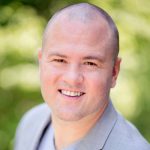
M.C. Laubscher is a Husband, Dad, Podcaster & Cashflow Coach.
As a cashflow investor & serial entrepreneur, M.C.’s passion is to assist investors & business owners to create, recover, warehouse & multiply cashflow through advance strategies.
Having figured out how to escape the rat race and replace his income through cashflow investing, he shares how highly paid professionals and business owners can replace their incomes through cashflow investing strategies to escape the matrix.
M.C. is a member of the Forbes Finance Council and has shared his strategies on Forbes Magazine, Entrepreneur Magazine, Grant Cardone TV, and Biggerpockets.
M.C. is the creator & host of the top-rated business and investing podcasts, Cashflow Ninja & Cashflow Investing Secrets and Chief Cashflow Coach at Cashflow Ninja LLC.
Our sponsor, Tribevest provides the easiest way to form, fund, and manage your Investor Tribe with people you know, like, and trust. Tribevest is the Investor Tribe management platform of choice for Jim Pfeifer and the Left Field Investors’ Community.
Tribevest is a strategic partner and sponsor of Passive Investing from Left Field.

